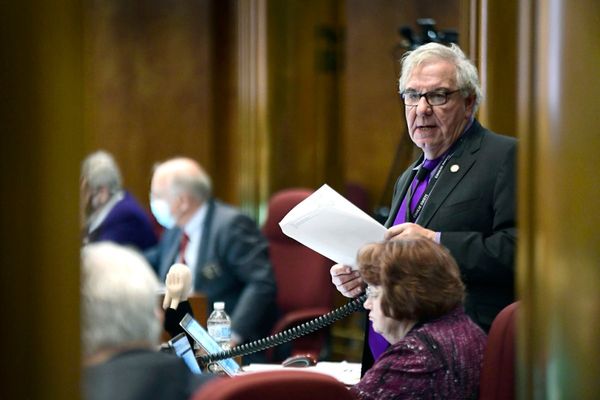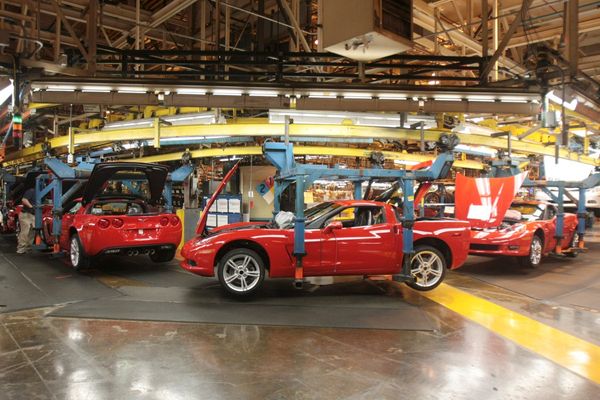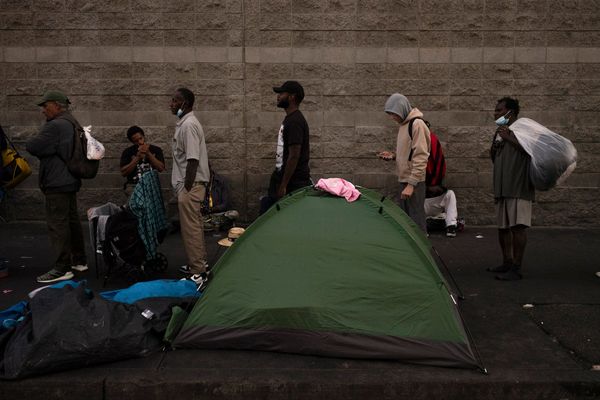Generators are being sourced from across Western Australia to ensure power continues uninterrupted to flood-damaged and isolated Kimberley communities.
Both Fitzroy Crossing and Derby's power stations are fuelled by liquefied natural gas, which cannot be safely transported on barges currently being used to resupply both towns from the ocean.
As a result, Emergency Services Minister Stephen Dawson said both towns would be powered by diesel generators until the road from Broome was fully repaired.
Mr Dawson said Derby had enough LNG on hand until Tuesday, with Fitzroy Crossing's supply expected to last until Wednesday.
"In just over a week's time, we'll need to have an alternate fuel source," Mr Dawson said.
"We'll have generators on the ground so we can use diesel in place of LNG."
The generators will be shipped into Derby, then transported to Fitzroy Crossing by road.
"It'll be fairly seamless as they move from LNG to diesel, residents shouldn't experience any difference," Mr Dawson said.
Gibb River Road back on table as freight route
With repairs to catastrophic damage to the Fitzroy Crossing Bridge and Great Northern Highway near Willare continuing, Mr Dawson said the Government was examining all alternative options.
While the Government initially ruled it out last week, Mr Dawson said the Gibb River Road was now being considered as an alternate freight route.
The 660km road - largely unsealed - runs north-east from Derby through the central Kimberley before re-joining Great Northern Highway between Wyndham and Kununurra.
While a popular tourist route, it also serves as the main access road for numerous cattle stations and remote Indigenous communities.
"While it's not the best road to drive on normally, we're looking at whether that could be an option to get trucks and certain vehicles through to the other side of the Kimberley," Mr Dawson said.
"We're looking to get a route from west to east up as quickly as we can."
The Minister said former cattle tracks running south of Great Northern Highway were also being examined as alternate routes.
"It may well be these roads need to be graded multiple times a week; we're looking at all the options," Mr Dawson said.
An alternate crossing at Fitzroy is unlikely to be usable until the end of the wet season, while attempts to source bridge-building capacity from the United States Military have been delayed by the Martin Luther King Day national holiday.
Scammers targeting flood victims
Online scammers are using devious and creative methods to steal relief funding from West Australian flood victims in desperate need.
As river levels reached record highs in the Kimberley this month, affected residents were left feeling anxious, afraid, and isolated, and the broader community flocked to social media to show its support.
But in comments sections and inboxes, predators eager to capitalise on this historic disaster were lurking.
Online scammers posing as representatives from fictitious relief associations have spammed comment sections of informative posts that offer general assistance to flood victims.
Using stolen names and images, scammers create profiles on popular social media pages to appear genuine in the online discourse.
While some scammers attempt to collect donations from donors, others aim to gain access to the bank accounts of the victims themselves, such as those claiming to be from the Australian Flooding Agency, which does not exist.
The latter contacts victims directly or leaves comments offering help and asking victims to contact them.
The scammers will then offer relief funds and ask the victim to register and provide bank details so payments can be made directly into their accounts.
Once they have those details, they can gain access to the bank accounts, where they will wait for genuine relief payments to be made and steal them.
Thriving on 'high emotion'
Targeting vulnerable communities is nothing new for scammers and Commissioner for Consumer Protection Trish Blake said she was not surprised to hear of an increase in fraudulent activity in the Kimberley.
"Consumer protection often sees scams of this nature happen whenever there is a disaster of any kind," she said.
"So we knew that the scammers would probably try to come out for the victims of the Kimberley floods."
Ms Blake said people dealing with the immediate fallout of natural disasters were prime targets.
"Scammers thrive on any period where there's high emotion, so the flood in the Kimberley at the moment is fertile ground for them to just jump in," she said.
Ms Blake says the best way to avoid scams is to never click on unknown links and to contact official government channels with any relief queries.
"It is highly unlikely that a government agency will contact you in that way," she said.
"Don't click on any links in text messages, do not click on any links in emails, and don't respond to unsolicited emails … these will not be genuine people.
"The only way you will get genuine assistance is if you go through government channels, so go to your local community resource centre or emergency help centre."
If you believe you have been the victim of a scam, you can report and receive support from Scamwatch.







